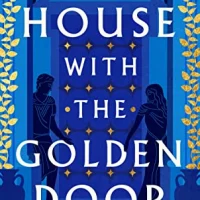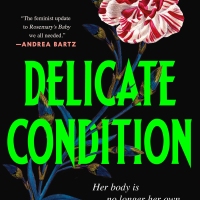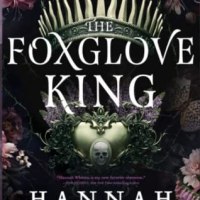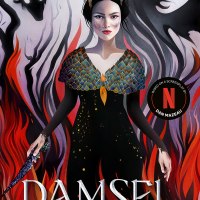Audiobook Review: Acacia: The War with the Mein by David Anthony Durham
 Acacia: The War with the Mein by David Anthony Durham
Acacia: The War with the Mein by David Anthony Durham
Genre: Fantasy
Series: Book 1 of The Acacia Trilogy
Author Information: Website
Publisher: Doubleday
Tiara’s Rating: 3.5 of 5 stars
Narrator: Dick Hill | Length: 29 hrs and 30 mins | Audiobook Publisher: Tantor Audio | Whispersync Ready (as of this posting): Yes
Leodan Akaran is the king of Acacia, which includes all the “known world.” The Akarans have ruled over Acacia for many generations with the throne being passed down from father to son. A bitter race called the Mein secretly oppose the Akaran rule and have since their occupation, feeling the Akarans have been disingenuous and underhanded in their rule, including how they dealt with their ancestors. The Mein’s version of history recounts how their ancestors were driven to the frozen north for being an earnest people and opposing the practices used to keep up this illusion of perfect.
Things aren’t as perfect as they seem on the surface. Leodan is idealistic, but buckled under the pressure of preserving the empire’s peace through unsavory means. Leodan hopes that his children will grow up and foster the change that he couldn’t. However, he doesn’t give his children the knowledge they need to fight for these changes st first, and when we meet the children they’re a seemingly clueless bunch whose father still spins tales when they try to question him about their true history. The Akaran children are the heart of this book as a whole, doted on by a troubled father whose only joy comes from loving them and mentally preserving the memory of his deceased wife.
Aliver is the oldest child and heir to the throne. Mena, Aliver’s younger sister, describes him as being afflicted with a disease called “boredom” that he hasn’t recovered from. He’s hot-tempered, given to action rather than inaction. He has a good heart and a naïve view of how the world should work. Corinn is the second oldest. She’s cultured, well-spoken, and versed in court behavior. She’s a princess’ princess. She considers herself the pretty one between her and her younger sister. After Corinn comes Mena, she is astute and curious, often described by others as having a wisdom and intuition beyond her years. Last is Dariel. Like his sister Mena he is curious with a taste for adventure and action. He has a way of getting into things under the noses of the adults.
With the twist of an assassin’s blade, the four Akaran children are thrown to the wind, a request made by their dying father to his most trusted adviser as the Akaran rule begins to crumble. He feels that allowing them to live their life unfettered will shape them into the people they’re meant to be, and with it, he hopes that the Acacian empire will become the bastion he wasn’t able to achieve in his reign.
This book started a little slow for me. It had those Game of Thrones vibes all around it as we meet the Akaran children. Despite that, I found Durham’s writing to be lyrical and thoughtful, so I toughed it out a little while longer, hoping it’d become more than a clone. Midway through the first part, Durham pushed off the ledge and began to distinguish this story as his own. It became a story about power, betrayal, redemption, love, and change coupled with a intriguing mythos that I mostly enjoyed.
One thing I truly appreciated about this is the lack of violence, especially gendered violence. I don’t mean that there’s not any fighting in this book, but there’s not pages upon pages of torture or rape or any of that nonsense to prove that this story is heavy. I’m especially glad there wasn’t the constant looming rape threat (against women) that is so prevalent in many fantasy novels trying to establish themselves as serious, grimdark books. I appreciate that he able to find depth in his writing that didn’t require that.
Also, I appreciated that that Durham tried to present a struggle where the grievances between these two races was not just a simple matter of who’s right and who’s wrong, who’s good and who’s evil, summed up succinctly by this quote:
Very little of what he learned of people’s actions began or ended with either the noble ideals or the fiendish wickedness he had been taught lay behind all great struggles. There was something comforting in this.
The readers do feel empathy for the Akaran children. Their father has been murdered and their fate has been placed in chance’s hands. However, the Mein aren’t presented as a despicable race of people. A people who would win a war through some questionable means, yes, but their actions hardly set a precedent in the book, as previous wars have been won through questionable methods and will likely continue to be won in that manner. Nothing about their actions say they’re worst than the Acacians. The methods seem brutal because we witness them in “real time” affecting characters in a current situation as opposed to only “hearing” about the actions of the former rulers and how they’ve affected the Mein in retrospect. It is, after all, war.
Durham doesn’t reduce the Mein people to just villain status. Their fears, wants, and needs are the same as any other people’s. Even in their war, the goal isn’t to annihilate these other people completely. This is seen as unrealistic and foolish. You fight the enemy and assimilate the people. They just want to claim what they feel they lost through treachery and end a dynasty. There isn’t needless slaughter of innocent to assert their rule (though there are casualties, of course) and much of life is the same for the people except the name and race of their rulers.
It makes readers question why they oppose the Mein rule so, but I think one character summed up the sentiment when they said they think people forgot the realities of the Akaran rule, that the nostalgia of having an Akaran on the throne tempered their opinions as neither rule is that much worse/better than the other. However, because the Mein aren’t some big bad, it does make the upcoming battle feel somewhat anticlimatic, even if the Akaran children are teeming with ideas about how the kingdom should be ruled, which brings me to my next point.
My main problem with this novel is that Durham obviously loves the Akaran children. There is nothing wrong with a writer loving their characters. They need to care about them in order to give the readers developed characters. However, the Akaran children don’t face many real dilemmas or most of the dilemmas they do face don’t give them actual crisis points with the exception of a few key moments. Even these varied situations they find themselves growing up in aren’t necessarily challenging them.
Situations that should be particularly prickly for them, they’re able to handle better than most people would with some of these outcomes feeling a little bit like Durham was afraid to really test the characters. This is especially true of a character I really loved in the book. For this reason, the novel didn’t have as much of an impact for me because, even when a scene got tense, you knew everyone was going to make it out unscathed while brandishing power beyond imagine. The story wasn’t tested because it’s characters were never truly tested.
As far as the narration goes, Dick Hill is an exceptional narrator for this story. However, I did find him to be a very slow reader, slower than normal. I could easily bump up the narration to two times the speed and he’d sound like he was reading at a more normal pace. He’s one of those rare narrators that I’m comfortable with listening to on three times the speed, which I still didn’t do very often. He has such a rich quality to his voice that I didn’t want to speed him up too much and lose that full-bodied, strong voice he brought to the story. Two times speed was a reasonable compromise between speed and narration quality for me. While I do think he has a rich, deep reading voice, that didn’t diminish the impact of the female characters since, for me, quality of timbre is a better way of portraying male/female characters over decreasing/increasing pitch arbitrarily.
Something I noticed with this audiobook is that it added content to the story. Sometimes, I’d read along with the narrator using the Kindle book, and there would be whole passages added to the story that are not in the book. I’m used to a missing or added word here and there when listening to an audiobook, but this is the first time I’d encounter a great deal of content being added to narration. It’s not necessarily a bad thing as it wasn’t just filler. The things added really helped to flesh out the story and characters, but it also made me feel a little apprehensive about reading the book without the narration because I felt that I may miss some great passages because the audiobook differed slightly from the book.












Be quiet. They can be perfect babies that I can cry over if they want to, Tiara. You didn’t actually use the “That’ll do, pig. That’ll do” gif. I think I am proud of you for this reason alone. So much self-discipline. I’m in awe. On a more serious note I do agree about him not really challenging the kids, not even after {SPOILER}. I still loved what he did with Mena, but she was nigh untouchable. I don’t want to see them suffer, but it would be nice to see them challenged.
LikeLiked by 1 person
You need to sign up for an account, Monica. Make yourself official like. 😜 I’m hoping that he pushed the siblings beyond their comfort zones a little in the next book. He’s set up an interesting foundation, but then, doesn’t realize it to its full potential. I’ll be starting the next one. Maybe next week once I knock some of these other books down.
LikeLike
You’re asking me to make an effort and commitment I might not be ready for yet. Once I stop being so lazy I promise I will make myself official. I’m ready to read the next book when you are. Mostly I want to see how nutso C gets now that she’s decided she’s not a Sansa and she’s going to get shit done. I wonder if there will be crazy amounts of hippocras consumed.
LikeLiked by 1 person
LikeLike
LikeLiked by 1 person
LikeLike
You mean not Book Sansa. I feel like TV Sansa was based on C. F Dany. Sansa go’n run tings.
LikeLiked by 1 person
Now I’m having flashbacks of that damn Hamon attack. Jeez, Tiara. Thanks for the memories.
LikeLike
Pingback: Audiobook News & Reviews: 03/10/15 | ListenUp Audiobooks
I tried to read this one in Swedish a couple of years ago, but ugh translations!
LikeLiked by 1 person
I’m sorry to hear that didn’t work out for you. I enjoyed it and hope he was able to strengthen the narrative in subsequent books.
LikeLike
I have heard such good things about this one! Have been wanting to try it, but I am glad to know that the characters are a bit safe. That’s not normally my preference, so I would want to make sure I was in a good mood for “safe” characters when I read this. 🙂
LikeLiked by 1 person
I mostly enjoyed this one. I was just a little disappointed that he played it so safe with these characters because there is so much potential there with them and the story. He has a few surprises, but mostly, it was very safe.
LikeLike
Great review! I read Acacia a couple of years ago and found it a bit “meh”, but I bought the second one somewhere for about 50p and will probably try for a re-read at some point.
Definitely agree with you about the characters never seeming to be in any real peril, and about them being sort-of Stark knock-offs, especially Mena/Arya and Corinn/Sansa.
LikeLiked by 1 person
That was perhaps my biggest disappointment was the characters, especially the Akaran children always getting out of situations so neatly (for the most part). Great characters, but so untested. I do have to say in Corinn’s defense that I really liked where he took her character in the end and I wonder how this change will affect the series.
Thanks for reading my review!
LikeLike
Hiya. Thanks for the review, even if the book wasn’t a complete success for you. Still nice to get some attention. 😉
I can explain the audiobook/kindle difference. The audiobook is based on the original text. There was a hardback and then a massmarket paperback edition, and then a trade paperback edition. I asked my publisher if I could make some edits to the trade edition. I pretty much just made cuts here and there, wanting to pick up the pace of the first part of the book especially. So, things weren’t ADDED to the audiobook. They were cut for the trade (and kindle, apparently) editions.
As for the Starks… I was done with the book and it was in production before I read A Game of Thrones. So, there was zero influence there, but I suspect some people will find that hard to believe. Hey, if I had read GRRM at that point, I’ve had made my characters that much more different – not similar! (Actually, in my first draft Dariel gets his hand chopped off. I’m soooo glad I changed that, considering what happens in GoT.)
Should you read on? Of course you should!
-David.
LikeLiked by 2 people
Thanks for the clarification on the audiobook/kindle differences. I like to use the whispersync option between the Kindle book and the audiobook for when I can’t listen, but I was a little afraid of doing that with this book because of the huge differences. However, later in the book that wasn’t so much an issue as earlier in the book, so that falls right in line with you mentioning you only did that to the beginning of the book. However, I will say that I actually appreciated the original text more than the cuts made to speed it along. They gave the situations more context and robustness for me.
I don’t find it hard to believe that there’s no influence there with ASOIaF. Just I said in another review recently of a fantasy book, similarities between books no matter the genre are going to be there regardless, and I’m not necessarily saying it’s bad or trying to single out people in accusation. It’s just easy to say that these are the kind of vibes I got from it as a point of reference, not that I necessarily believe that you patterned them after the Starks. But as I said in my review, once I got about midway through the first part, it changed.
I also meant to mention in this review that I appreciated that this book was dark in its own way without having to resort to pages and pages about rape, torture, etc. (and I think I will edit this review and add that because that was something I discussed in great lengths with friends when talking about what I liked about the book).
There are so few books that completely satisfy me, and the things I didn’t quite care for in yours still weren’t as bad as most books. I actually start to feel weird if I’m just gushing over a book with no cons because I try to even out reviews as much as I can for books I enjoyed. If I had to go on a solid star rating where I couldn’t do half ratings, I’d still give this book 4 stars overall (which I did on Goodreads) because I enjoyed it. It was a good story, and I have every intention of finishing the trilogy.
I appreciate you taking time to read my humble review and respond to it. 🙂
LikeLike
How interesting that you liked the long version! And thanks for the comments re the darkness with a bunch of rape and torture. That wouldn’t have felt quite right for this series, though I’ve certainly written both those things in my historical novels.
LikeLike
I bought this book a few years ago and haven’t read it yet. Now you got me curious 🙂
LikeLiked by 1 person
I definitely recommend reading it. There’s a great story there.
LikeLike
Pingback: Tough Traveling: Dead Gods | The BiblioSanctum
Pingback: Tough Traveling: People on Boats | The BiblioSanctum
Pingback: Teaser Tuesday & Top Ten Tuesday: Top Ten (Audio) Books I’ve Listened To So Far In 2015 | The BiblioSanctum
Pingback: Top Ten Tuesday: Top Ten Best Books I Read In 2015 | The BiblioSanctum